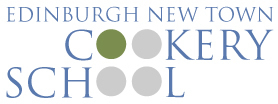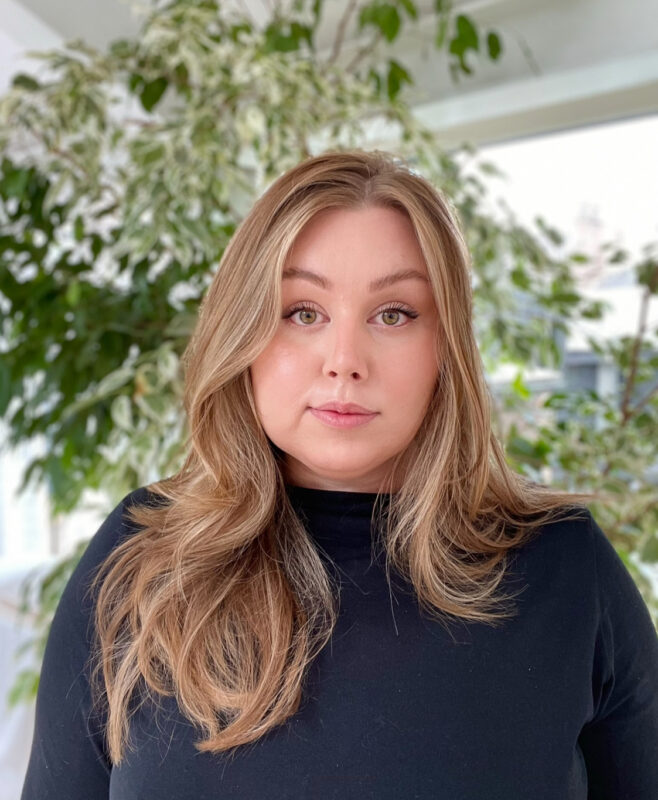Case Studies
Lucy Harding
Lucy Harding
Visit Lucy’s Instagram and LinkedIn
Graduated from:
Six Month Practical Cookery Diploma
Bio:
Lucy graduated with us in 2013, she has since gone on to live and work all around the world and has led an impressive career journey, focussing on food sovereignty and justice in food systems. Her path demonstrates the expansive opportunities that can open up upon completion of the course when you follow your passion and have the incredible drive that Lucy herself does. Now working with Real Farming Trust and Edinburgh Food Social while also providing her own culinary classes, she advocates for a better food system in the UK and supports young people experiencing food poverty locally.
What sparked your passion for food?
Growing up in the south of France, I’d always been immersed in incredible food culture, but my passion for food was also hugely influenced by both of my grandmothers. One of them was an incredible cook who could give Elizabeth David a run for her money, and the other was a terrible cook who could make even the worst meal into a fun game or hilarious performance. Between these three influences, I came to love good food eaten in even better company.
What encouraged you to follow your passion and undertake professional training?
I didn’t previously realise that enrolling in culinary school was a possible career path, so had fallen into an academic degree at Edinburgh University without really knowing what I wanted to do. I’d spend my days daydreaming about cooking instead of revising, and became obsessed with the idea of studying French cookery and going to culinary school. From that point on there was no stopping me! I had been planning to take a sabbatical from university and this meant that the path to culinary school became clear. Serendipitously, there was one spot left on the Six Month Practical Cookery Diploma starting the next month at ENTCS. From there, everything fell into place.
Why did you choose Edinburgh New Town Cookery School?
A friend of mine had done a short course at Edinburgh New Town Cookery School and raved about it, so I’d already heard good things. I was excited to find that there was an alternative to the London cookery schools in Edinburgh, and the location, duration, and content of the six-month diploma was exactly what I was looking for as an enthusiastic young cook with no professional kitchen experience.
How has your training at Edinburgh New Town Cookery School influenced your career progression?
My educational experience at Edinburgh New Town Cookery School was both formative and foundational. Of course, the diploma gave me a fantastic grounding in practical cookery skills and understanding technique and theory, but it also taught me invaluable lessons about organisation, artistic expression and creativity, and working as a part of a team which helped me grow both personally and professionally.
What skill or knowledge taught during your course has been most valuable throughout your career?
To me, one of the most underrated skills is knowing how to put together a killer menu, this is something I managed to finetune during my time at Edinburgh New Town Cookery School. Lots of chefs know how to make great dishes, but struggle with balancing menus and combining techniques and ingredients from different cuisines. Understanding how to create a conceptual dining experience based on seasonality, culinary skill, and fluency in a respective food culture is priceless.
How has your career progressed since graduating?
After graduating, I went straight into private cheffing for clients across the UK and in France for around a year. I came back to Edinburgh and ran the kitchens at Earthy and Café Modern One, then branching into menu development and creative consultancy after my involvement in rebranding Hula Juice Bar. To keep developing my understanding of Mediterranean food culture I began working on organic farms across Italy, eventually ending up in France where the opportunity to volunteer to cook in refugee camps came up. It was a no-brainer: I got in touch with the Refugee Community Kitchen (RCK), who has put out the call, and arranged to go and spend that December cooking with them in Calais, Northern France.
I’d always had an interest in food politics, but the experience with RCK ignited a new passion for understanding how to build justice in food systems. I found a degree in New York designed specifically for those with a culinary background who wanted to develop an understanding if food systems. I spent the next four years learning about everything from feminist foodways and racial injustice in food systems to the the migration of species, cuisines, and cultures across the modern world. During this time, I had the privilege of eating my way through the city from Jewish delis to Dominican bodegas and everything in between.
Recently, I’ve moved back to Edinburgh and have been working with two incredible organisations that are working towards creating a more just food system locally and across the UK. As Communications Manager at the Real Farming Trust, I advocate for agroecology and food sovereignty and help create spaces and opportunities for those who are engaged in sustainable food production across the UK to come together, share knowledge and build connections. I work with Edinburgh Food Social to provide free culinary education to young people and adults in areas of Edinburgh that experience high levels of food poverty and food insecurity. Alongside supporting these organisations, I also offer bespoke cookery classes with groups and individuals both online and in-person.
What goals do you hope to achieve in the future?
Food sovereignty – everybody’s right to healthy and culturally appropriate food produced in harmony with nature – is at the heart of all of my professional endeavours. I’m a firm believer that when we fix the food system, we fix everything, and that process begins with reclaiming and developing strong food cultures that support community resilience. Understanding the significance of how we produce our food, and how this shapes our culinary and social experiences is crucial for any good cook. I’d love to help the culinary industry engage more with traditional knowledge and ancestral foodways to further this understanding.
What advice would you offer to our current professional students?
Follow your passion and values; hospitality and professional cooking can be tough, so you have to a develop strong sense of what’s guiding you. A career in food can be incredibly exciting and rewarding and opens up so many possibilities to explore, so make it your own!
A cookery school case study

